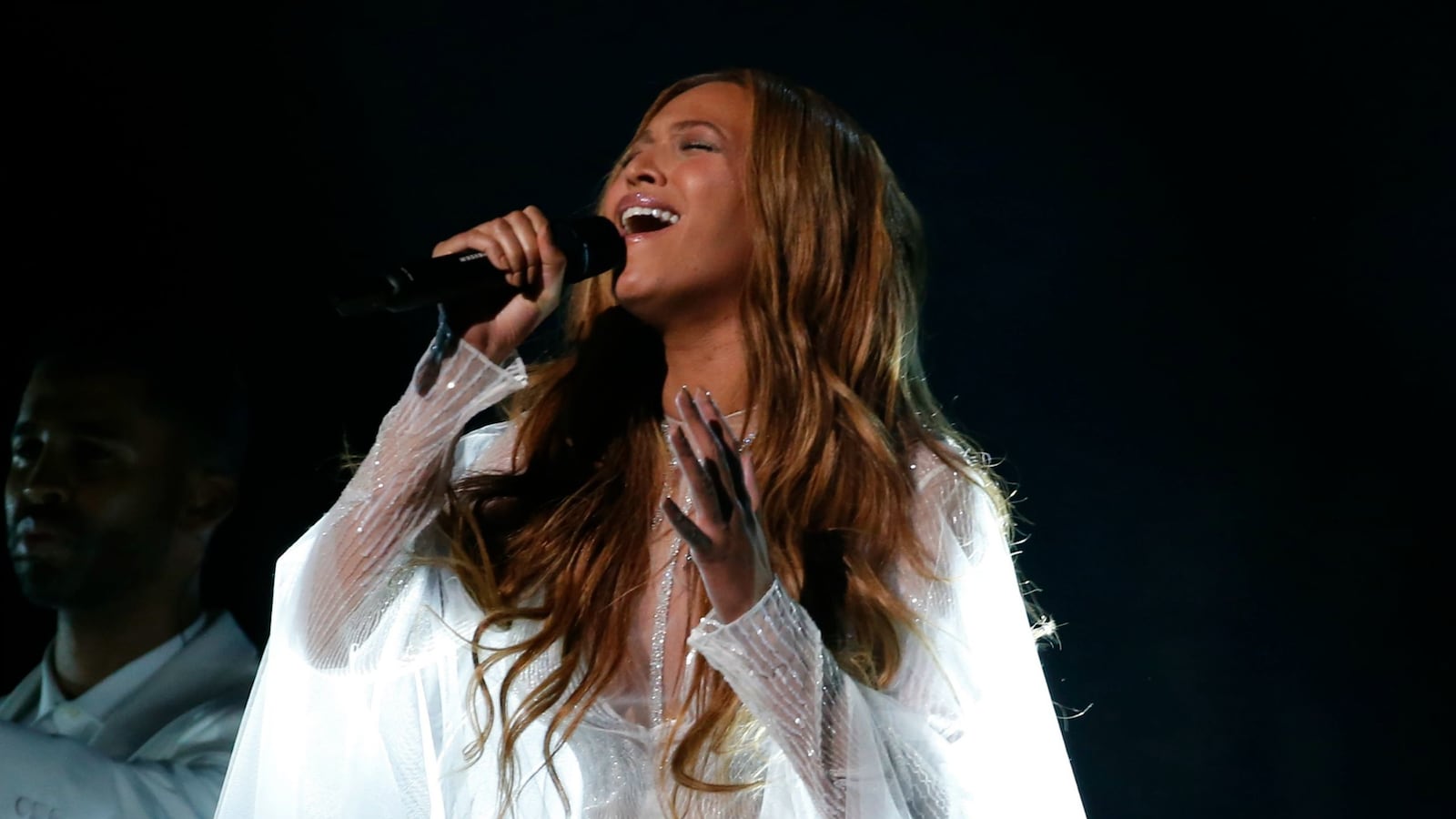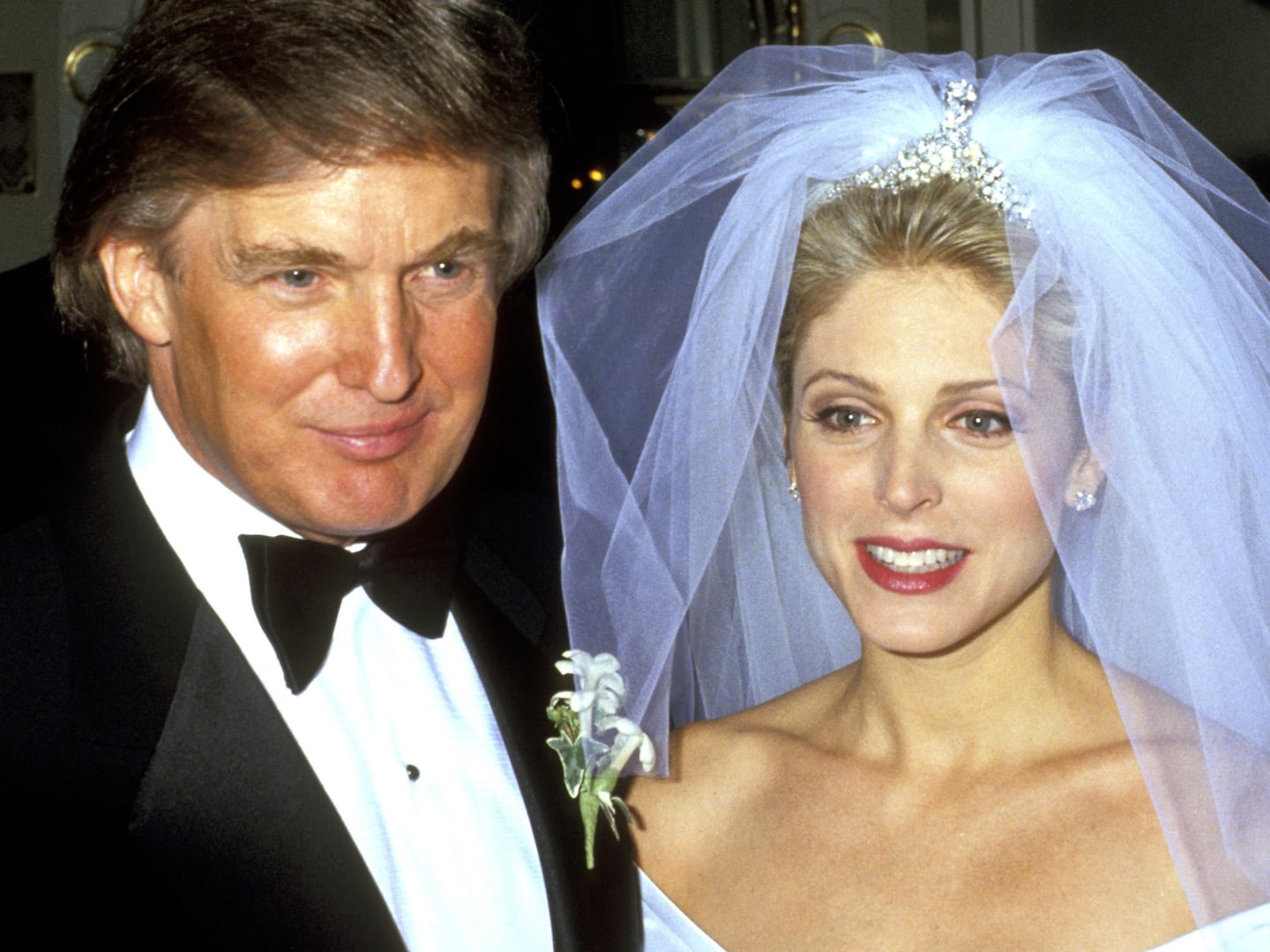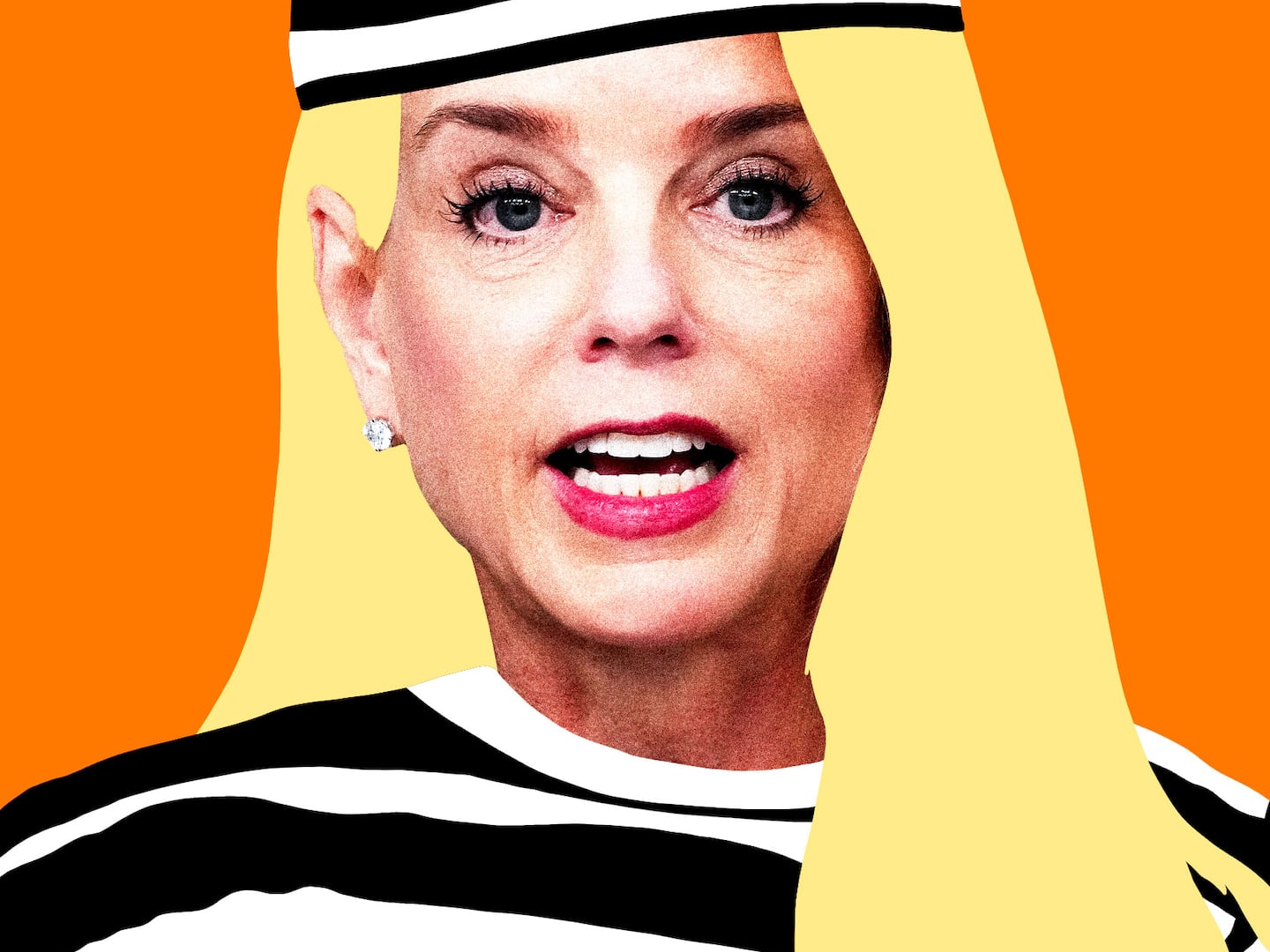Beyoncé is widely considered to be one of the most influential people in the world. And she does her influencing silently.
The pop deity is on the cover of the hallowed September issue of Vogue, making history as only the third black woman to be given that honor. The cover, in the Beyoncé way, made instant headlines: first the fawning over her fierceness, then the marveling over her audacity—the wet hair!—and then basking in the landmark nature of it all.
But not one bit of news was made over what Beyoncé said in the magazine. Because she said nothing.
This is not normal. But it is very Beyoncé.
As The New York Times reports, no Vogue cover model has appeared on the magazine without granting a (typically revelatory) interview to accompany her photo shoot in at least five years, which is as far back as the paper surveyed. And yet Beyoncé’s September issue features no interview. Instead, Pulitzer Prize-winning writer Margo Jefferson pens a tribute to the singer's star quality.
As the Times puts it in its headline, “Beyoncé Is Seen But Not Heard,” an assertion that is bolstered by the fact that, in addition to her Vogue silence, she has not given an interview in over a year and perhaps hasn’t directly answered a journalist’s question since some time in 2013.
(Literally, this is confirmed by one Beyoncé’s representatives, explaining why a Times reporter writing about the star's vegan diet would have to be satisfied with her unprompted, polite, and ultimately meaningless opining about the lifestyle in lieu of an actual interview.)
So here we have an unusual case: The biggest celebrity in the world is the one who rebuts the thing we value most in today’s celebrities: constant candor and relentless access and communication.
The previous model for superstardom, to which Beyoncé is perhaps the only subscriber left, was one in which the most famous people in the world were the most mysterious. There was glamour in being untouchable. The higher the pedestal the better, both for us to gaze up at and to keep the distance between the rich and famous and us mere mortals.
Now, we’ve bulldozed the pedestal. Celebrities must be down to earth, or at least pretending to be, and gabbing so much about how normal they are that we feel like they’re our best friends.
With Jennifer Lawrence’s every tale of Big Macs and farting, we love her more. While omnipresence like Amy Schumer had this summer might have run the perils of overexposure in years past, each new day’s hilarious interview only serves to feed the culture’s obsession with her.
And even greater is when these stars continue their charm offensive on Twitter, peddling their quippy relatability in constant 140-character doses and making it seem like we—everyday normals—are actually interacting with the likes of Mindy Kaling or Anna Kendrick. Share every moment of your life, and we’ll care about you more!
We want everything from these people: a command of high-low talking points that has them discussing everything from their reality TV guilty pleasures to their stances on feminism and gun control.
Gamely they do, even when they don’t really have anything to promote. Miley Cyrus, to my best guess, has nothing to promote right now except her views on gender fluidity, but it’s a press tour that we all couldn’t be more behind as she appears on magazine interviews galore this month.
Some stars like Lena Dunham are taking extra steps in opening lines of communication. The Girls creator and “cultural fire conductor” is starting a newsletter, a political platform and personal supermarket that grants the ultimate access into the life of a celebrity: turning her existence into a lifestyle. Even the highest tier of Hollywood royalty—the Angelina Jolies, the Nicole Kidmans, the Cate Blanchetts—all grant high-profile interviews, all wrapped up in pomp and circumstance, like a Vogue shoot, that signals their importance.
But not Beyoncé.
In fact, Beyoncé seems to exist in an echelon of celebrity where silence is expected, perhaps because perfection is an assumption. Sure, Beyoncé stands for things more substantial than being #flawless. A deep read of her lyrics reveals a certain perspective on love, self-respect, sex, and what it means to be a powerful female. And just by standing in front of the word “feminist” during a Video Music Awards performance, she became the icon for the entire idea. At least according to all those thinkpieces.
These are statements. Yet, unless it’s to say thank you for giving her all of the awards, Beyoncé doesn’t speak.
And you know what? That might be for the best. Because the thing is, when Beyoncé does speak…it kind of makes you like her less. Who wants to live in a world in which something hinders our relentless, life-giving worship of Beyoncé?
Perhaps it’s wise that Beyoncé is leaving it to others to explain the extent of her power and perfection because when she is tasked with doing it herself, as she’s done in the past, it ends up just icky. “Beyoncé” + “icky” are words that should never be paired together in the English language.
Here she is in GQ in 2013 (that interview where we learned that she employs a “visual director” who follows her around for up to 16 hours a day and that a “temperature-controlled digital-storage facility” houses thousands of hours of private video footage and photographs): “I now know that, yes, I am powerful. I’m more powerful than my mind can even digest and understand.”
Ew.
There was that time she directed a documentary about herself. It was as ridiculous as it sounds. And like the last time she actually spoke with Vogue, when she appeared on the February 2013 cover, she managed to both say a whole lot, while not really saying anything at all—and coming off politely insufferable to boot.
That said, there was one quote from Life Is But a Dream that speaks volumes about the vow of silence she’s since taken. “I always battle with how much I reveal about myself,” she said. “How do I keep my humility and spirit? How do I continue to be generous to my fans and my craft? How do I stay current, but how do I stay soulful?”
Think about what Beyoncé has done in the time since saying that. She released a surprise album that received the best reviews of her career. She headlined world tours. She was at the center at one of the most scandalous TMZ leaks of the past year—the elevator brawl—and weathered rumors of divorce. In an age of longwinded statements, apologies, and talk-show-circuits-as-damage-control, she remained silent, returned attention to her career, and finished with her shining star as untarnished as ever.
She’s Beyoncé. Turns out that speaks for itself.






